
A. Read the text and name some pros and cons of technological progress.
History of Technology
Part II
In the Middle Ages in Europe watermills and windmills brought a revolution to the production of power. The new technologies enabled people to construct wonderful cathedrals of great size − the best example of gothic architecture [ˈɑːkɪtektʃə]. During the 14th century Europeans managed to produce guns.
From the 15th to the 17th century the period of Renaissance spread in Europe. It is considered revolutionary in many spheres. The New World was discovered and explored. The printed books helped the development of European cultural life. The Renaissance saw a new interest in technology, and the new technology led to new problems. One problem was that shipbuilding and iron industry needed a lot of wood. To be able to afford it, Europe soon lost its forests.
Another problem was the need in more powerful engines. The 18th century in Europe was the time of the Industrial Revolution, the time when technology developed very fast. In 1712 Thomas Newcomen, an Englishman, invented the steam engine. In the 1760s, James Watt improved the Newcomen engine, which opened the way to constructing steamboats and locomotives in the early 19th century. The Industrial Revolution gave rise to the engineering profession. More and more universities began to train engineers.
During the 19th and 20th centuries people’s lives have greatly changed thanks to science and technology. Achievements in transportation, communications and use of energy have had a great influence on the modern society. Medical knowledge has given people longer and healthier lives. Computers are giving us new opportunities at work and at home. Now people have better living standards and much more free time.
On the other hand, a lot of people may argue that such great technological achievements do not come without a price. And indeed they were achieved at the cost of losing a lot of important things − the beauty of nature, physical health, some personal qualities. New technology has led to creating weapons of mass destruction; new communication technology and computers have brought with them the problem of loneliness. Air, water and soil pollution is now damaging the environment; the great intensity of human life leads to stresses. As a result, many people question the advantages of high technology and often ask: “What does the future promise us?”
B. Listen to the text, CD (47), and read it aloud.
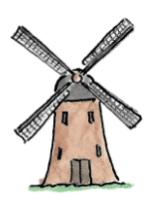
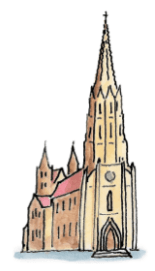
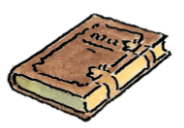
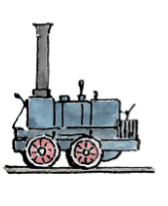
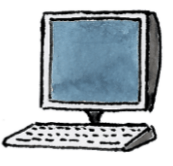

Перевод задания
A. Прочитайте текст и назовите некоторые плюсы и минусы технического прогресса.
История технологии
Часть II
В Средние века в Европе водяные и ветряные мельницы произвели революцию в производстве электроэнергии. Новые технологии позволили людям построить замечательные соборы огромных размеров − лучший образец готической архитектуры. В 14 веке европейцы успели производить ружья.
С 15 по 17 век в Европе распространился период Возрождения. Его считают революционным во многих сферах. Новый Свет был открыт и исследован. Печатные книги способствовали развитию европейской культурной жизни. В эпоху Возрождения возник новый интерес к технологиям, и новые технологии привели к новым проблемам. Одна из проблем заключалась в том, что судостроение и металлургическая промышленность нуждались в большом количестве древесины. Чтобы иметь возможность себе это позволить, Европа вскоре лишилась своих лесов.
Другой проблемой была потребность в более мощных двигателях. XVIII век в Европе был временем промышленной революции, временем, когда технологии развивались очень быстро. В 1712 году англичанин Томас Ньюкомен изобрел паровую машину. В 1760−х годах Джеймс Уатт усовершенствовал двигатель Ньюкомена, который открыл путь к строительству пароходов и локомотивов в начале 19 века. Промышленная революция породила инженерную профессию. Все больше университетов стали готовить инженеров.
В XIX и XX веках жизнь людей сильно изменилась благодаря науке и технике. Достижения в области транспорта, связи и использования энергии оказали большое влияние на современное общество. Медицинские знания дали людям более долгую и здоровую жизнь. Компьютеры дают нам новые возможности на работе и дома. Сейчас у людей более высокий уровень жизни и гораздо больше свободного времени.
С другой стороны, многие люди могут возразить, что за такие великие технологические достижения приходится платить. И действительно, они были достигнуты ценой потери многих важных вещей – красоты природы, физического здоровья, некоторых личных качеств. Новые технологии привели к созданию оружия массового поражения; новые коммуникационные технологии и компьютеры принесли с собой проблему одиночества. Загрязнение воздуха, воды и почвы в настоящее время наносит ущерб окружающей среде; большая интенсивность жизни человека приводит к стрессам. В результате многие люди ставят под сомнение преимущества высоких технологий и часто задаются вопросом: «Что нам сулит будущее?»
B. Прослушайте текст, Аудио (47), и прочитайте его вслух.
ОТВЕТ
A.
The new technologies enabled people to construct wonderful buildings. The printed books helped the development of European cultural life. But shipbuilding and iron industry needed a lot of wood. To be able to afford it, Europe lost its forests. Achievements in transportation, communications and use of energy have had a great influence on the modern society. Medical knowledge has given people longer and healthier lives. Computers are giving us new opportunities at work and at home.
Such great technological achievements were achieved at the cost of losing a lot of important things − the beauty of nature, physical health, some personal qualities. New technology has led to creating weapons of mass destruction; new communication technology and computers have brought with them the problem of loneliness. Air, water and soil pollution is now damaging the environment; the great intensity of human life leads to stresses.
Перевод ответа
A.
Новые технологии позволили людям строить замечательные здания. Печатные книги способствовали развитию европейской культурной жизни. Но судостроение и металлургическая промышленность нуждались в большом количестве древесины. Чтобы иметь возможность себе это позволить, Европа потеряла свои леса. Достижения в области транспорта, связи и использования энергии оказали большое влияние на современное общество. Медицинские знания дали людям более долгую и здоровую жизнь. Компьютеры дают нам новые возможности на работе и дома.
Столь великие технологические достижения были достигнуты ценой потери многих важных вещей – красоты природы, физического здоровья, некоторых личных качеств. Новые технологии привели к созданию оружия массового поражения; новые коммуникационные технологии и компьютеры принесли с собой проблему одиночества. Загрязнение воздуха, воды и почвы в настоящее время наносит ущерб окружающей среде; большая интенсивность жизни человека приводит к стрессам.
Пожалуйста, оцените решение